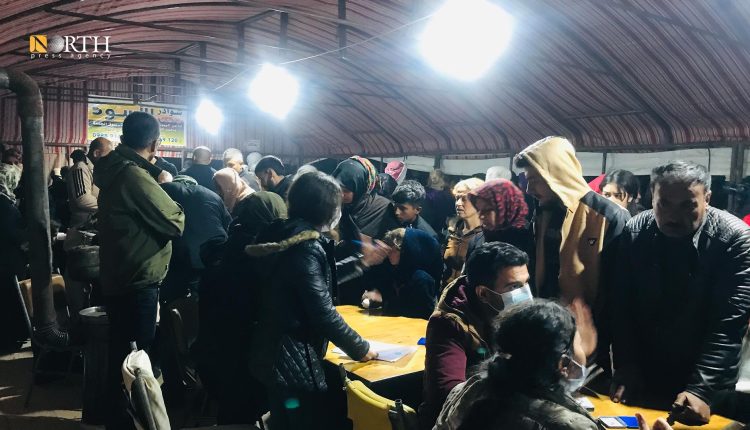Stranded in Northern Aleppo: Displaced Civilians Face Uncertain Future
ALEPPO, Syria (North Press) – Thousands of displaced civilians remain trapped in northern Aleppo countryside under harsh conditions, unable to escape due to the siege imposed by Turkish-backed armed factions.
Displaced individuals, many of whom fled Afrin during earlier conflict, now find themselves subjected to ongoing harassment, food shortages, and worsening weather. In a phone interview with North Press, one stranded civilian described the dire state of affairs:
“We are living in extremely difficult conditions due to the siege. Children and the elderly are particularly suffering from the cold and the lack of food supplies,” he said.
Systematic Abuses
Human rights monitors, including the Synergy Association for Victims, have documented cases of killing, detention, and enforced disappearance targeting Kurdish civilians attempting to flee combat zones. These abuses have heightened fears among those still stranded in areas controlled by Turkish-backed factions.
The displaced individual, who requested anonymity, expressed concern over the fate of others trapped in the region, adding, “Thousands remain here, and we do not know if they will ever be able to leave. We live in constant fear of the violations committed by the factions.”
Harsh Conditions Worsen
The situation in the northern Aleppo countryside is compounded by harsh weather and a severe lack of humanitarian aid. With the region now under the control of Turkish-backed groups, residents face systematic restrictions on movement and access to basic necessities.
The displaced face additional challenges as reports indicate that these factions are targeting civilians with verbal and physical harassment, creating an atmosphere of fear and uncertainty.
Calls for Action
The plight of the displaced in northern Aleppo underscores the urgent need for humanitarian intervention. Aid organizations and international actors must address the lack of food, medical supplies, and safe passage for civilians trapped in this worsening humanitarian crisis.
Without immediate support, thousands remain at risk, facing the dual threats of violence and extreme deprivation.

